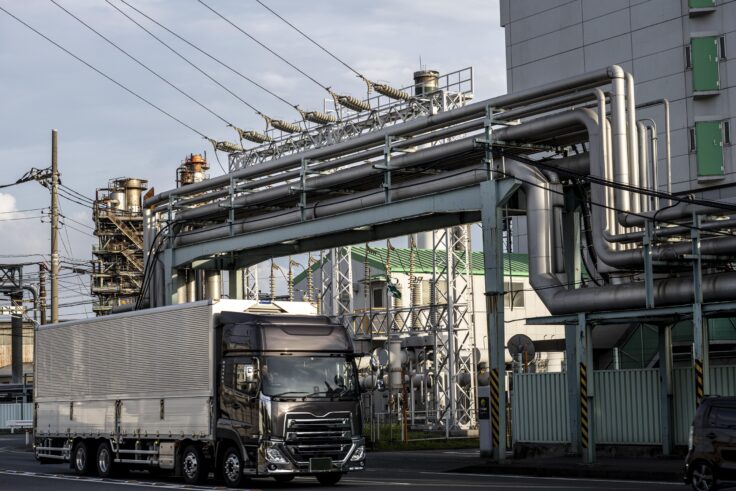The foundation of the transportation sector is diesel trucks, which are renowned for their dependability and effectiveness in moving large, heavy loads over extended distances. Diesel trucks can experience problems, though, just like any other car, especially with their fuel systems. It is essential to comprehend and identify fuel system issues to preserve the longevity and functionality of these potent devices. The symptoms of a clogged fuel line, other typical fuel system problems, and particular difficulties with diesel fuel—like air in the fuel line—will all be covered in detail in this blog post.
Common Symptoms of a Clogged Fuel Line
A clogged fuel line is a common issue in diesel trucks that can severely impact performance. Here are some telltale symptoms:
- One typical problem with diesel trucks that can seriously affect performance is a plugged fuel line. Here are a few warning signs:
- Engine sputtering: The engine may splutter if there is a blockage in the fuel line because it cannot get a steady supply of fuel. This may occur seldom or when there is significant acceleration.
- Initial Concerns: Starting the engine is difficult is a certain sign of fuel delivery issues. An engine that requires more fuel to start may not start at all if there is a blockage in the fuel line.
- Loss of Power: The truck may noticeably lose power if the gasoline line is partially obstructed, particularly when accelerating or when carrying a large load..
- Stalling: The engine may stall while it is at idle or while it is moving due to a seriously congested fuel line. This happens as a result of the engine not receiving the gasoline required to run.
- Fuel Odor: If there is a discernible fuel odor within or outside the car, there may be a leak or obstruction allowing fuel to seep out of the lines.
Diagnosing a Clogged Fuel Line
Diagnosing a clogged fuel line involves a few key steps:
- Visual Inspection: Check the fuel lines for any visible signs of damage, kinks, or leaks. Look for wet spots or areas where dirt and grime have accumulated, which might indicate a leak.
- Fuel Pressure Test: Using a fuel pressure gauge, measure the pressure at different points in the fuel system. Low pressure at the fuel rail can indicate a blockage upstream.
- Inspect Fuel Filter: A clogged fuel filter can mimic the symptoms of a clogged fuel line. Check and replace the fuel filter if it appears dirty or has not been replaced according to the manufacturer’s schedule.
- Check for Contaminants: Diesel fuel can become contaminated with water, dirt, or algae. Inspect the fuel tank and lines for any signs of contamination.
Other Common Fuel System Issues
Aside from a clogged fuel line, diesel trucks can suffer from several other fuel system issues:
- Fuel Pump Failure: The fuel pump is responsible for delivering fuel from the tank to the engine. Symptoms of a failing fuel pump include whining noises from the fuel tank, engine misfires, and low fuel pressure.
- Injector Problems: Fuel injectors are critical for delivering the right amount of fuel into the combustion chamber. Dirty or malfunctioning injectors can cause poor fuel economy, rough idling, and engine misfires.
- Fuel Contamination: Diesel fuel is prone to contamination by water, algae, and other particulates. Contaminated fuel can lead to clogged filters, injectors, and fuel lines, causing various performance issues.
- Air in Fuel Line: Air can enter the fuel system through leaks or during filter changes. Symptoms include hard starting, rough idling, and stalling. In severe cases, air in the fuel line can prevent the engine from running altogether.
Diagnosing Fuel System Issues
To diagnose fuel system issues in a diesel truck, follow these steps:
- Listen and Observe: Pay attention to any unusual noises, smells, or performance changes. This can give you clues about where the problem might be.
- Use Diagnostic Tools: Modern diesel trucks come equipped with onboard diagnostic (OBD) systems that can help pinpoint issues. Use an OBD scanner to check for error codes related to the fuel system.
- Fuel Sample Test: Take a fuel sample from the tank and inspect it for contamination. This can help you determine if dirty fuel is the root cause of your issues.
- Inspect Fuel Injectors: Remove and inspect the fuel injectors for signs of wear or clogging. Cleaning or replacing faulty injectors can restore proper fuel delivery.
Air in Diesel Fuel Line Symptoms and Solutions
Air in the fuel line is a common problem in diesel engines, often caused by leaks or improper maintenance. Here are the symptoms and solutions:
Symptoms:
- Hard Starting: Air in the fuel line can cause difficulties in starting the engine, requiring multiple attempts before the engine fires up.
- Rough Idling: The presence of air bubbles in the fuel can lead to uneven fuel delivery, causing the engine to idle roughly.
- Stalling: Intermittent air pockets can disrupt the fuel supply, leading to engine stalling while idling or driving.
- Loss of Power: Similar to a clogged fuel line, air in the fuel system can cause a noticeable loss of power, especially under load.
Solutions:
- Bleeding the Fuel System: Bleeding the fuel system is a process of removing air from the fuel lines. This can be done manually by loosening the bleed screw on the fuel filter housing and using the hand pump to push fuel through until only fuel (no air bubbles) comes out.
- Inspect for Leaks: Check all fuel lines, connections, and the fuel filter for any signs of leaks that could be allowing air into the system. Replace or repair any damaged components.
- Proper Maintenance: Ensure regular maintenance of the fuel system, including timely replacement of fuel filters and proper handling during filter changes to prevent air from entering the lines.
- Check Fuel Pump Seals: The seals on the fuel pump can wear out over time, allowing air to enter the system. Inspect and replace these seals if necessary.
Preventive Maintenance for Diesel Truck Fuel Systems
Preventive maintenance is key to avoiding fuel system issues in diesel trucks. Here are some tips:
- Regular Fuel Filter Replacement: Follow the manufacturer’s recommendations for fuel filter replacement intervals. Clean filters ensure a steady flow of clean fuel to the engine.
- Use Quality Fuel: Always use high-quality diesel fuel from reputable sources. Poor-quality fuel can introduce contaminants that clog the fuel system.
- Monitor Fuel Quality: Regularly check the fuel for signs of water or other contaminants. Use additives if necessary to prevent algae growth and other issues.
- Inspect Fuel Lines and Connections: Regularly inspect all fuel lines and connections for signs of wear, damage, or leaks. Replace any components that show signs of wear.
- Keep the Fuel Tank Full: Keeping the fuel tank full can help prevent condensation, which can introduce water into the fuel system.
- Use Fuel Additives: Consider using fuel additives designed to clean the fuel system and improve fuel quality. These can help prevent the buildup of contaminants and improve engine performance.
Conclusion
Maintaining the fuel system in a diesel truck is critical for ensuring reliable performance and longevity. By understanding the symptoms of common issues like a clogged fuel line and air in the fuel system, and by following proper diagnostic and maintenance procedures, you can keep your diesel truck running smoothly. Regular inspections, timely replacements of filters and other components, and the use of quality fuel are essential practices for any diesel truck owner or operator. With proper care and attention, you can minimize downtime and keep your diesel truck on the road, delivering the performance and reliability you depend on.



